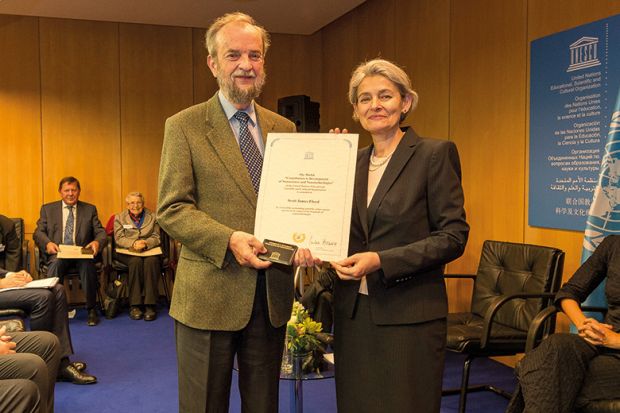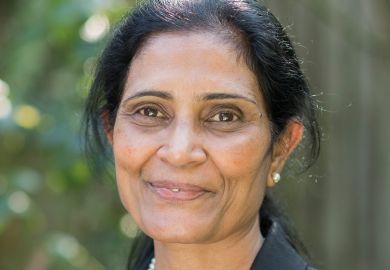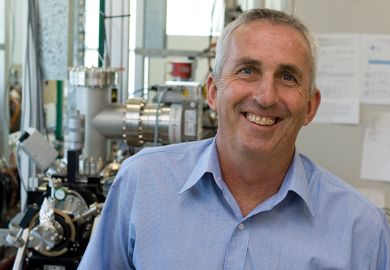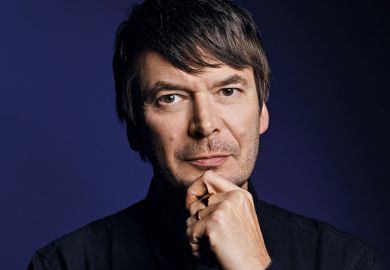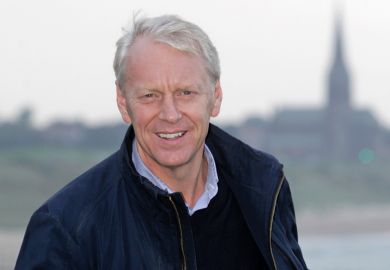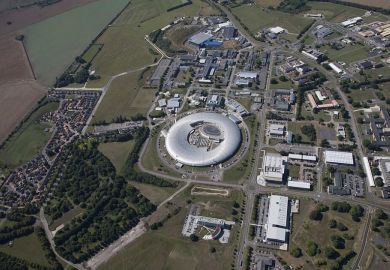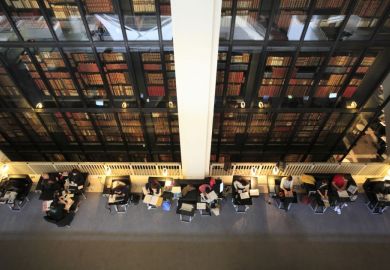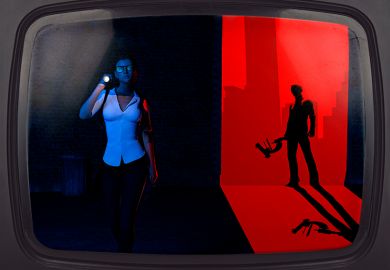Jim Scott is a professor in the schools of Physics and Astronomy, and Chemistry, at the University of St Andrews. His pioneering research on ferroelectric materials and devices, including the nano-memories that are now used in millions of e-money smartcards around the world, has been commercialised in an industry worth about £100 million. In October, he was awarded the Unesco medal for “contributions to nanoscience and nanotechnology”.
Where and when were you born?
Born 4 May 1942 in Beverly, New Jersey, USA (population 3,000).
How has this shaped you?
Growing up in a poor village is a mixed blessing: you think you are the smartest kid in town, which gives you naive optimism. This sometimes results in a harsh dose of reality when you win a full bursary at age 17 to Harvard University. But naive optimism is better than giving up early, thinking you'll never escape your housing estate.
What does the awarding of this medal represent to you?
At 74, getting a medal is comforting. All physicists have tender egos; validation by being told that you have done a good job can be reassuring.
Did you have any clue that your initial research in the 1980s would be worth hundreds of millions 30 years later?
No. I thought I might make £1 million. Readers must understand that professors who invent things are normally not legally entitled to any royalties; these belong either to the university for which they work, or sometimes all or in part to external funding corporations or agencies. My US university was quite generous and permitted me to set up a small spin-off company, from which I earned licensing fees; but these ended long before large commercial production occurred.
What advice would you give to people doing research that they believe will have commercial value?
Try to file patents early. This requires the cooperation of the university – in both the UK and the US, the university owns all patents from professors; the inventor does not.
A lot has been said recently about UK-born academics winning Nobel prizes at US universities. What are your experiences of researching in the US and the UK?
Different kinds of people move according to supply and demand. UK physicists go to the US, where salaries are 200 per cent as large. Ironically, I came to the UK because I had made money with inventions and therefore didn’t mind a 50 per cent salary cut. Also, I went to be a professor at the University of Cambridge; for a physicist, Cambridge is still a kind of Mecca.
Do you think it’s a problem for UK research that people educated here are researching abroad and winning Nobels?
No. International research spans borders. [Nobel laureates Michael] Kosterlitz or [David] Thouless this year or Tony Leggett some years ago still interact strongly with UK physicists and/or hire UK PhD students and assistants. The scientific community gives prizes to individuals, not to countries.
What has changed most in global higher education in the past five to 10 years?
Ten years ago, many universities were run by senior faculty (professors). Now they are often run by people with MBAs.
What keeps you awake at night?
I am troubled by world, UK and US politics. Not a happy relaxed time.
What do you think the reaction will be from US higher education to Donald Trump being elected US president?
I suspect it will be negative. The polling data suggest that [Hillary] Clinton carried most of the highly educated voters. However, I grew up in an impoverished biracial community in the US, and I know and like these people. It is a mistake for news media in the UK or the US to assume that folks with modest formal educations are stupid. Education and intelligence are not the same thing.
What’s your biggest regret?
Very few – even when I make stupid decisions, they work out fine in the long run. I entered Harvard as a possible English literature major. I didn’t even study physics until the second year. Another mistake? No. Perhaps I am better read than many physicists. And my papers are reasonably well written: not a disadvantage.
What advice do you give to your students?
Don’t give up. One professor at St Andrews tells all his first-year students that they have only a 1 per cent chance of being a professor some day. Nonsense! That’s true only if you insist on staying in the UK. The US has 500 universities. If you really would like to be a professor of, say, chemistry, and you are a better than average student here at St Andrews, you can be a professor somewhere.
What kind of undergraduate were you?
I was an undergraduate with very broad interests. I was the antithesis of Sheldon on The Big Bang Theory. I liked girls, music and Russian literature. The books I learned most from were not course books – The Little Prince and Animal Farm. I was perhaps a typical village boy, and wanted a broad education.
What’s your most memorable moment at university?
I got my PhD aged 23 – very abnormal in the US. My (first) wife was nine months pregnant, and I had no medical insurance and less than £10 in my pocket. I thought, “Thank God I made it!”
What is the biggest misconception about your field of study?
I thought scientists were marching together into the future to help humanity. That is not true; we are as competitive and unscrupulous as used-car dealers. Read James Watson’s The Double Helix.
If you were the higher education minister for a day, what policy would you immediately introduce to the sector?
Provide ring-fenced money for more teaching and research labs in science. Labs are expensive, but chemistry and physics are still experimental subjects. Skimping on equipment, consumables and lab space results in an imbalance of theory and experiment.
Appointments
Kalwant Bhopal is to join the University of Birmingham as professorial research fellow in race and education. Professor Bhopal’s research has centred on the achievements and experiences of ethnic minority staff and students. She is currently professor of education and social justice at the University of Southampton and is also visiting professor at the University of Wisconsin-Madison and King’s College London. She said that Birmingham “will be the perfect place for me to critically explore how we can address inequalities in education, particularly race, class and gender, in our quest for a society which values education for the many, rather than the few.”
Ryszard Piotrowicz has been nominated to serve a second term on the Council of Europe’s anti-trafficking body, the Group of Experts on Action against Trafficking in Human Beings (GRETA). He is professor of law at Aberystwyth University, and has worked with international organisations including the United Nations High Commissioner for Refugees and the International Organisation for Migration. Professor Piotrowicz said he was delighted with the nomination: “My work in Strasbourg over the last four years has enabled me to have a real impact on the way the law protects victims of human trafficking.” He was first elected to GRETA in 2012 after his nomination by the UK government.
Colin Fox has been named the new global chair of the Institute for Mathematical Innovation at the University of Bath. He is currently university professor in the department of physics at the University of Otago, New Zealand.
Melanie Rogers of the University of Huddersfield will lead the Nurse Practitioner/Advanced Practice Nurse Network of the International Council of Nurses. She will be the first UK expert to take the role.
Antony Long has taken up the post of deputy vice-chancellor and provost at Durham University. Professor Long has been at Durham since he was an undergraduate and is currently a professor in its department of geography.
POSTSCRIPT:
Print headline: HE & me
Register to continue
Why register?
- Registration is free and only takes a moment
- Once registered, you can read 3 articles a month
- Sign up for our newsletter
Subscribe
Or subscribe for unlimited access to:
- Unlimited access to news, views, insights & reviews
- Digital editions
- Digital access to THE’s university and college rankings analysis
Already registered or a current subscriber?
